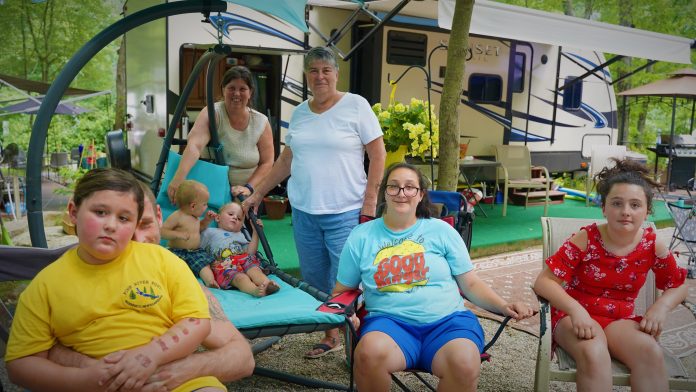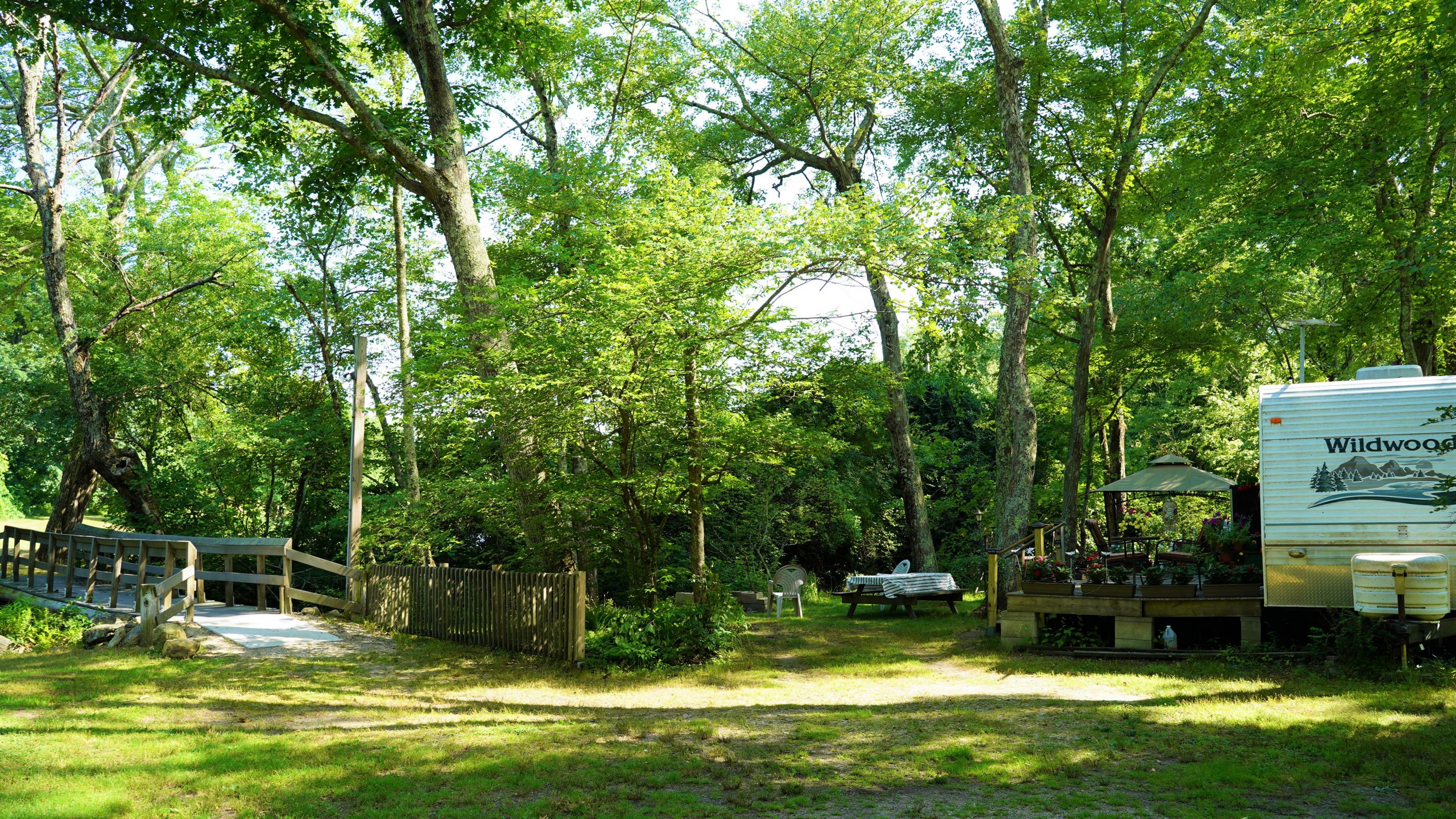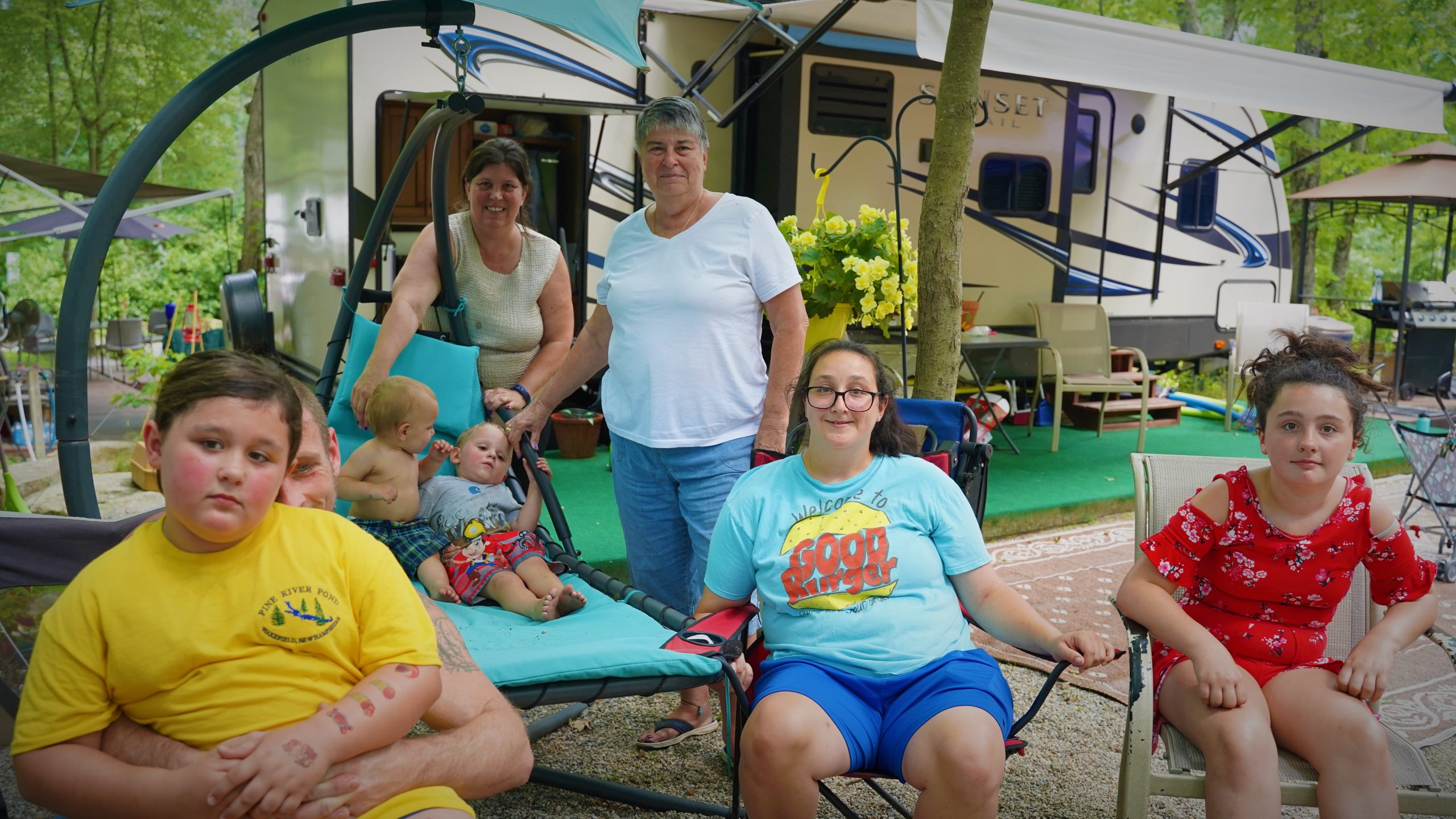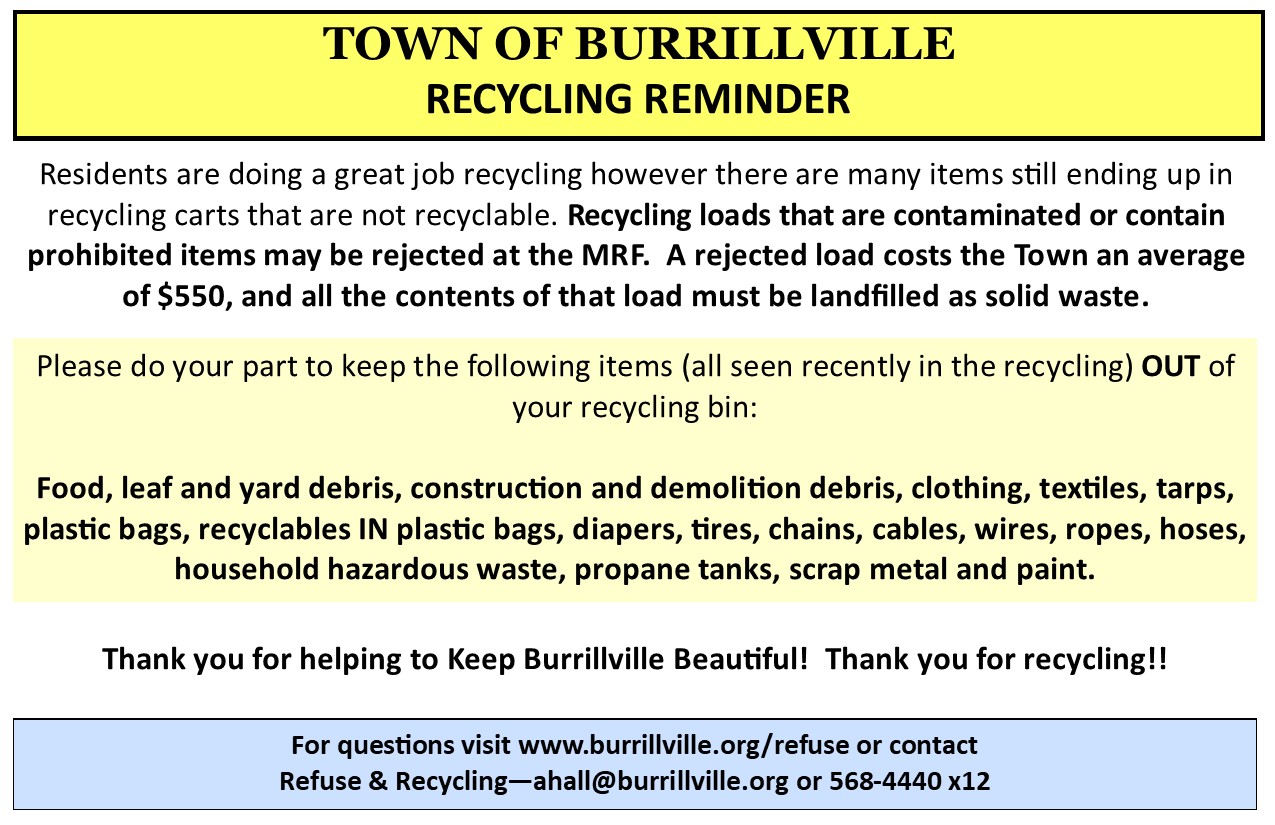
NORTHERN RI – In the 1983 comedy hit National Lampoon’s Vacation, the Griswold family’s stop at the decrepit and dirty “Kamp Komfort,” depicts just one more disappointment in a road trip gone wrong.
But far from a last resort, camping, for an ever-growing number of Americans, is a favorite pastime, providing a chance to get away and enjoy the great outdoors.
According to the company Condor Ferries, the number of Americans camping three or more times in a year increased 72 percent in 2014. In 2018, 1,400,000 households went camping for the first time.
And with summer of 2020 well underway, camping continues to grow in popularity, even as many of the season’s traditional activities, from large barbecues to concerts, have been brought to a halt.
But some things about the camping experience have inevitably changed.
In 2020, camping is “a good way to get outdoors…[while] still following the guidelines,” Oakleaf Family Campground’s Kim Michalik said, explaining that the Chepachet campground is following government mandates for COVID-19.
The campground, for example, provides ample space between units, as well as following all other protocols, such as limited use and signing in for particular recreational activities.
Getting outdoors is good for people and for business. And this summer, business is flourishing.
“People cannot travel,” Michalik said, noting that camping is, “the next best option” for a vacation.
Like Michalik, at Ginny-B Campground in Foster, owner Ginny Bassett is concerned about the enjoyment and the safety of campers.
“I’m an older campground owner, so I’m being extremely cautious,” said Bassett.
The campground is allowing only seasonal campers or those with a reservation for a year or more.
She says campers are telling her, “ I feel safe here, Ginny.”

Bassett notes there are some changes this summer for campers: bathrooms are closed, as is the store, and there’s no swimming at the lake.
“I’m trying to keep people healthy and stay in business,” she said.
The small business is not at full capacity, and camping is unlike any year on record, but Bassett notes that her guests seem to adapt as much as possible.
“They enjoy the outdoors, having a campfire at night, taking a walk,” said Bassett. “It’s in the country, so it’s peaceful.”
But are there other benefits to the popular summertime activity?
“Family time. Getting outdoors. Getting away from their houses that they’ve been in so long,” said Michalik.
What’s more, campers go for walks, and getting outdoors in the fresh air is good for health. Even before COVID 19, Americans spent the majority of their time, as much as 90 percent, indoors, according to the Environmental Protection Agency. Indoors, “the concentrations of some pollutants are often 2 to 5 times higher than typical outdoor concentrations,” the agency notes in an indoor air quality report on EPA.gov.
The human brain is “extremely sensitive to decreases in oxygen levels”, so when a person is camping, and going for walks outside, breathing the fresh air, “improves brain function, especially if a person is cooped up,” according to an article from the brain experts at Advanced Neurotherapy of Boston.
Other benefits of the fresh air include stress reduction, improved concentration when in natural scenery and increased Vitamin D from sunlight, notes beyondthetent.com, camping enthusiast Ryan Cunningham’s website.
Cunningham lists other health aspects of camping: Clean outdoor air causes the body to produce more serotonin, a chemical produced in the brain that effects mood, digestion, desire, appetite, memory, and sleep. Bright sunlight also increases serotonin, and melatonin, which controls the sleep cycle.
Others benefits of camping are better sleep from waking naturally with the sun, following nature’s rhythm, and for many, getting more exercise. Life outdoors also builds a healthy appetite, and campers tend to cook, rather than grabbing fast food.
Those hoping to camp this year will want to check with the campground to ensure it’s open, and to understand the guidelines.
Another camping website, TheDyrt.com, notes that in Rhode Island, “Facilities at state parks are limited with the closure of restrooms, visitor centers, and most buildings within the park.”
Nationwide: “Park officials at all major NPS sites are taking precautions to avoid the spread of COVID-19 at parks, and a majority of parks have closed or limited visitor operations, including welcome centers, ticketing offices and campgrounds. While following safety guidelines from local and federal governments, National Parks are beginning to reopen after COVID 19 closures. Parks plans to reopen in phases so prepare for limited operations, closed campgrounds and visitor centers.”
With all its limitations, camping in 2020, it seems, still provides a needed relief for many who’ve found themselves looking for adventure – even without a local “Wally World” providing a final destination.

foreground center and right:







